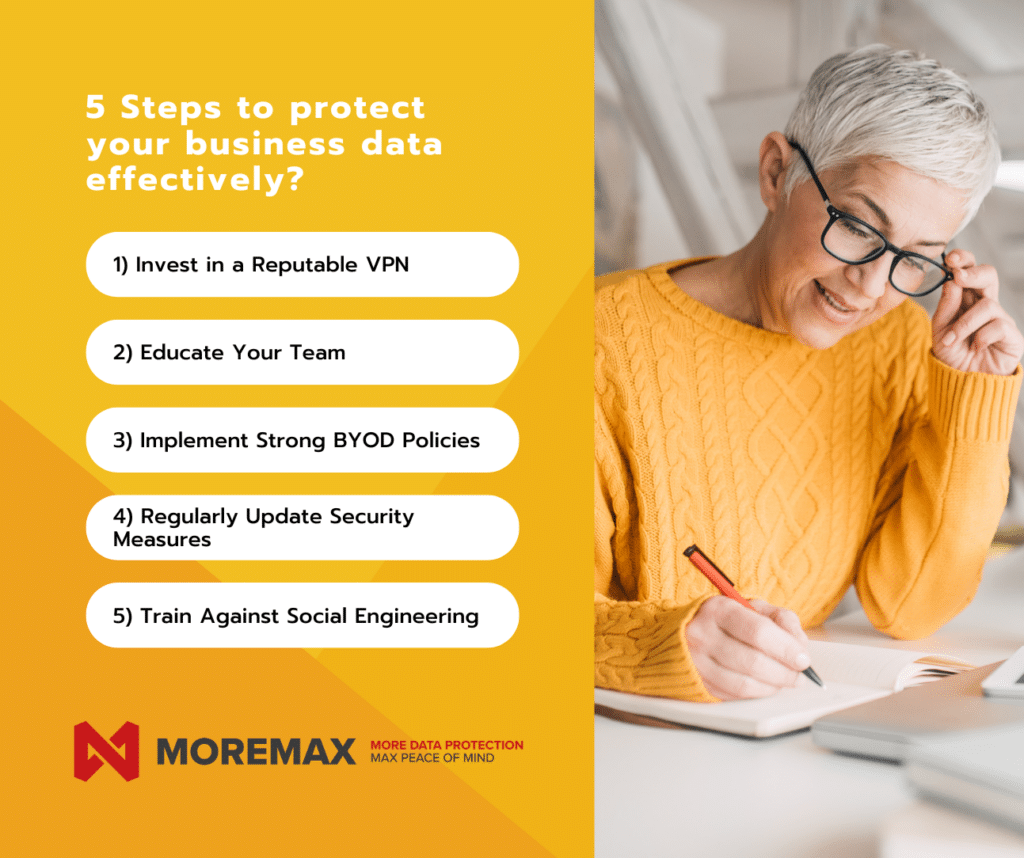
In the digital age, where information travels faster than ever before, securing your business data has never been more crucial. As remote work and Bring Your Own Device (BYOD) policies become the norm, the need for secure connections has led many to explore Virtual Private Networks (VPNs) as a solution. However, a concerning trend has emerged – the use of free VPNs, which, despite their apparent cost-effectiveness, can pose significant risks to your business data and cybersecurity.
The Temptation of Free VPNs
The allure of free VPN services is undeniable. After all, who doesn’t love something free of charge? These services often promise anonymous browsing, access to restricted content, and enhanced online privacy. But as the saying goes, “there’s no such thing as a free lunch.” When it comes to VPNs, this sentiment rings especially true.
Hidden Costs and Risks
While free VPNs may seem like a budget-friendly solution, they often come at a hidden cost – the compromise of your data security. These providers need to generate revenue somehow, and they often do so by exploiting user data. Your online activities could be logged, analyzed, and even sold to third parties without your knowledge or consent. This poses a significant threat to your business’s sensitive information and intellectual property.
Lack of Encryption and Data Protection
One of the primary functions of a VPN is to encrypt your internet connection, ensuring that your data remains confidential while in transit. However, many free VPNs skimp on encryption protocols, leaving your data vulnerable to interception by cybercriminals. This negligence can result in data breaches, putting your company’s financial and personal information at risk.
Inadequate Infrastructure
Maintaining a reliable and secure VPN infrastructure requires substantial resources and investment. Free VPN providers often lack the financial means to support robust networks, leading to slow connections, frequent downtime, and potential leaks. These issues can severely hamper your team’s productivity and expose your business to various online threats.
Malware and Advertisements
Another concerning aspect of free VPNs is the prevalence of malware and intrusive advertisements. Some providers inject ads into your browsing experience, potentially exposing you to malicious content. This practice not only disrupts your workflow but also heightens the risk of malware infections, which can compromise your devices and data.

Protecting Your Business Data
Given the risks associated with free VPNs, what steps can you take to protect your business data effectively?
- Invest in a Reputable VPN: Opt for a paid VPN service from a reputable provider. While this comes with a cost, the security and peace of mind it offers are invaluable.
- Educate Your Team: Ensure that your employees understand the risks of using free VPNs and encourage them to use only approved and secure tools.
- Implement Strong BYOD Policies: If your company embraces BYOD, establish clear policies that outline which tools and services are permissible for work-related tasks.
- Regularly Update Security Measures: Keep your software, applications, and devices up to date with the latest security patches to minimize vulnerabilities.
- Train Against Social Engineering: Educate your team about social engineering tactics that cybercriminals use to exploit information. Awareness can be a powerful defense.
In conclusion, while the allure of free VPNs may seem tempting, the potential risks they pose to your business data and cybersecurity are not worth the compromise. By investing in reputable VPN services and educating your team on the importance of secure online practices, you can safeguard your business data and maintain a robust defense against cyber threats.
Remember, the cost of a data breach far outweighs the expense of implementing proper security measures. Prioritize the protection of your business data – your company’s future depends on it. We can help you with all your questions and how you can implement a proper tool stack.


